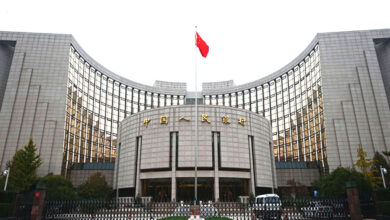According to the deputy governor of the Bank of Japan, the inflation target should not be reduced.

Deputy Governor of the Bank of Japan (BOJ) Masazumi Wakatabe said on Thursday that lowering the bank’s goal of 2% inflation would hurt the effects of its ultra-loose monetary policy.
He also said that the central bank should be careful about making more changes to its yield curve control (YCC) policy, such as widening the band around its target yield on 10-year bonds.
The comments came after a group of academics and business leaders suggested that the BOJ make the inflation target a long-term goal instead of one that must be met quickly. This would give the BOJ more freedom to raise interest rates.
Wakatabe, who is a strong supporter of aggressive monetary easing, said that lowering the inflation target could make the BOJ’s monetary policy goal too vague.
Related: Japanese stocks were up at the close of trading; the Nikkei 225 gained 0.07%.
In a speech, he said that it could make monetary policy less clear and less effective. “This is true not only for dealing with deflation but also with inflation.”
Wakatabe also said that the central bank’s plan to keep its ultra-loose policy in place had “absolutely not changed.”
Since inflation is higher than the 2% goal, there is a lot of talk on the markets that the BOJ will start raising interest rates when Governor Haruhiko Kuroda’s term ends in April.
Critics of the BOJ’s ultra-loose policy warn of the rising costs of long-term easing, such as market distortions caused by the bank’s constant defence of its yield cap.
Companies are raising prices.
Wakatabe, whose term as deputy governor ends in March, said that more and more companies were raising prices and wanting to raise wages.
But he said it was hard to tell if these changes in the price outlook would last and help Japan reach its inflation goal in a sustainable way.
“There are both risks that prices will go up and risks that they will go down.” In fact, downside risks are still pretty high, so we can’t relax. After giving the speech, Wakatabe spoke at a news conference.
Core consumer prices in Japan were 4.0% higher in December than they were a year earlier. This was twice as fast as the BOJ’s target rate of inflation and kept market hopes alive that the central bank would soon start to reduce stimulus.
Related: As inflation and a lack of workers hurt, Japan Inc. tries to attract skilled workers.
Investors who thought rates would go up soon tried to get the BOJ to change its yield control policy. In December, the BOJ surprised everyone by widening the allowance band around its 10-year yield target. Because of this, it now lets the yield on a 10-year bond go up to 0.5%, up from 0.25% before.
Even though December’s change was needed to make YCC more stable, Wakatabe said that by letting yields rise more, the BOJ basically made its policy less of a stimulus.
When asked if the BOJ could raise the cap again, Wakatabe said, “We shouldn’t weaken the effect of the stimulus with policy changes.”
“We must be very, very careful” about whether to change YCC again, he said.





